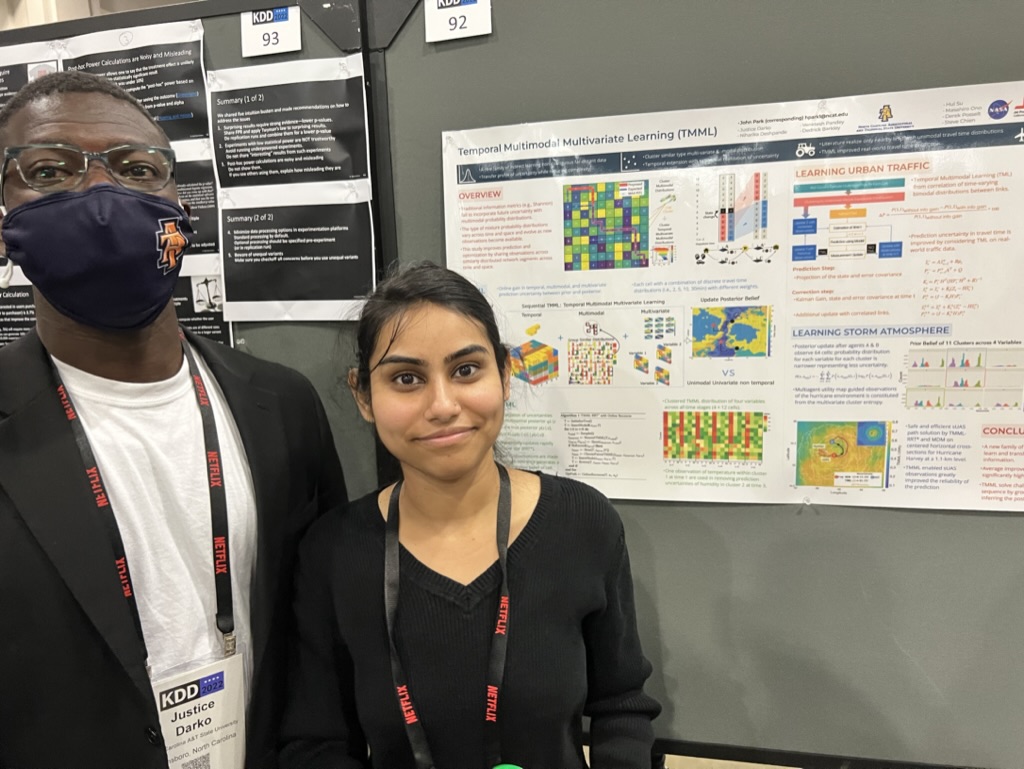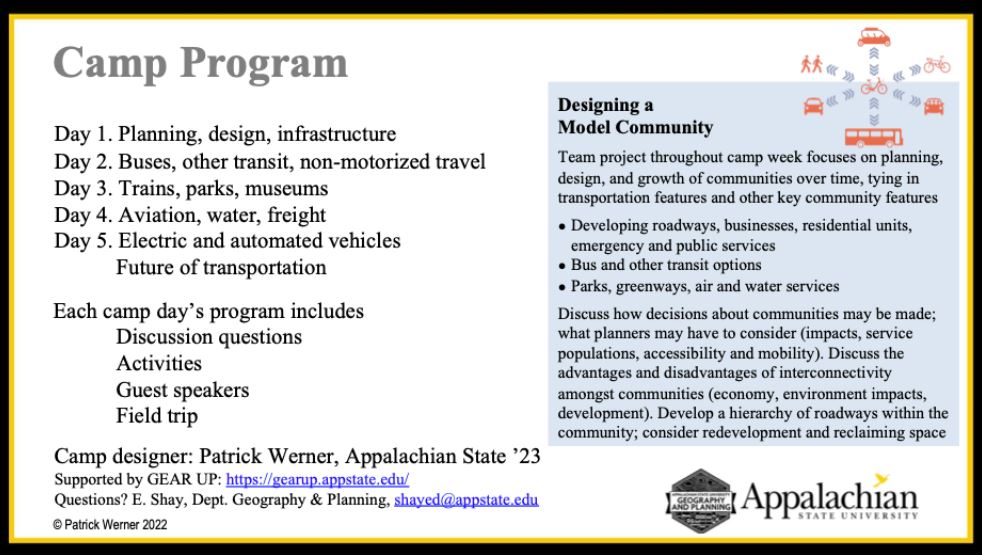Workforce Development
TSAP partners have incorporated research-related learning opportunities into each project to extend student engagement beyond the classroom and into the field. They also frequently organize and participate in activities intended to increase the existing pipeline of transportation professionals. Below are a few examples of past TSAP workforce development activities.
- August 14-18, 2022: Project 4 published two papers in and received three students travel awards to The SIG Knowledge Discovery and Data Mining (KDD 2022) Conference.

- October 13-14, 2020: Graduate students presented TSAP research at the 2020 NCDOT Research & Innovation Summit. This event brought together peers in the public, private, and academic sectors to collaborate and discuss innovative transportation technologies and research.
 July 13-31, 2020: Two TSAP researchers shared their research with students during the 29th North Carolina A&T State University’s Summer High School Transportation Institute (STI). The primary goal of STI is to generate awareness among minority high school students of the various educational paths and attractive career opportunities associated with the transportation industry. Dr. Sean Tikkun, assistant professor in the Department of Education at NCCU, gave a presentation on GPS and GIS for the visually impaired. Dr. Srinivas Pulugurtha, professor and research director of the IDEAS Center at UNC-Charlotte, discussed an array of careers in Civil Engineering.
July 13-31, 2020: Two TSAP researchers shared their research with students during the 29th North Carolina A&T State University’s Summer High School Transportation Institute (STI). The primary goal of STI is to generate awareness among minority high school students of the various educational paths and attractive career opportunities associated with the transportation industry. Dr. Sean Tikkun, assistant professor in the Department of Education at NCCU, gave a presentation on GPS and GIS for the visually impaired. Dr. Srinivas Pulugurtha, professor and research director of the IDEAS Center at UNC-Charlotte, discussed an array of careers in Civil Engineering.
Stay tuned for more information about our ongoing workforce development efforts.
Synergistic Research
TSAP partners draw upon extensive national transportation experience to be leveraged to benefit North Carolina, including extensive professional networks established through three University Transportation Centers.
Collaborative Sciences Center for Road Safety (CSCRS)
CSCRS has several research projects relevant to TSAP currently underway, including projects exploring: advanced analytics applications to frame vulnerable user and AV interactions; how pedestrians will interact with AVs; a concept for an AV dispatch center; and how machine learning techniques can inform road safety countermeasures. CSCRS has already offered a lecture series focused on safety considerations for AVs, such as AV proving grounds, environmental concerns, public health implications, options for mobility, and more. CSCRS also leads research related to Vision Zero, data linkage, micromobility, and other topics pertaining to automation and vulnerable road user safety in North Carolina.
Center for Advanced Transportation Mobility (CATM)
TSAP benefits from its synergies with NC A&T’s other dynamic navigation projects: pedestrian multimodal trip planner (USDOT funded), bounded rational choice (USDOT funded), drone-traffic incident management (VDOT funded), drone-emergency vehicle cooperation (USDOT funded), and pedestrian evacuation (USDOT funded).
Mineta Consortium for Transportation Mobility (MCTM)
TSAP benefits from related work ongoing at MCTM, a UTC with a goal to lead the nation in research that identifies safe, reliable transportation solutions that increase mobility of people and goods and strengthen the nation’s economy.
Transportation Camp

Appalachian State University senior Patrick Werner created a transportation camp targeted at middle schoolers. The project was supported by the GEAR UP program at Appalachian State University, whose curriculum experts reviewed the materials. The theme of the five-day camp is transportation across the counties of NW North Carolina, shedding a spotlight on transportation options, operations, design, and innovation. The camp focuses on collaboration, communication, creativity, and creative thinking. The project team welcomes inquiries from schools or other organizations. Questions? Contact Elizabeth Shay at shayed@appstate.edu.
